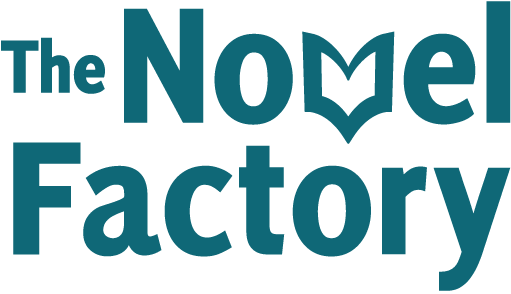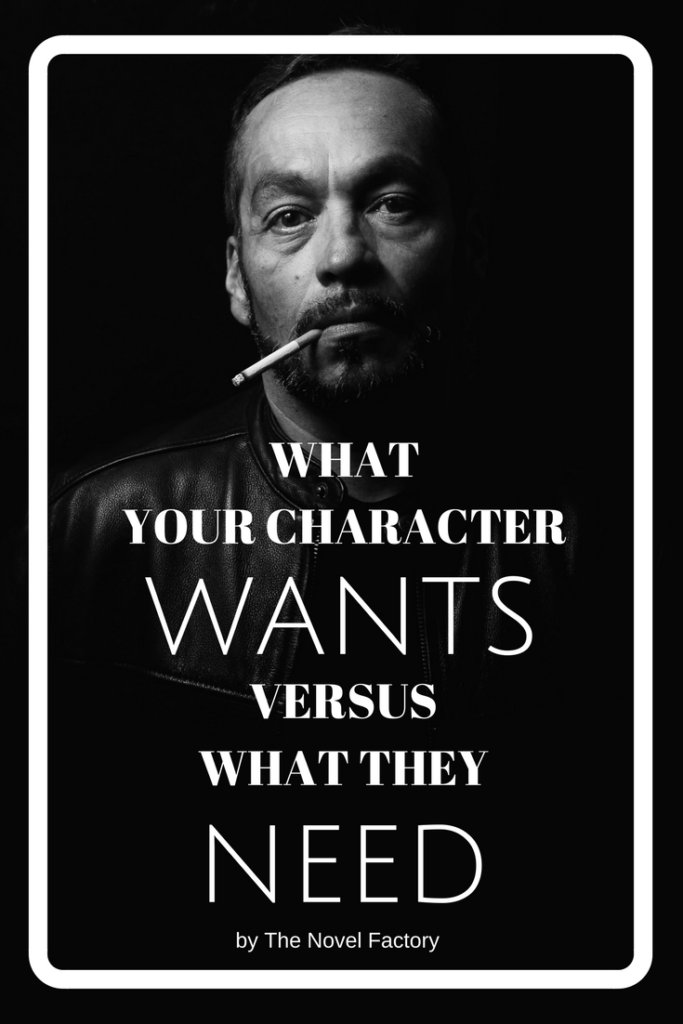What Your Character Wants Versus What They Need
We all want something.
You’re probably already aware that the protagonist of your novel needs some kind of motivation – an objective (or several) to carry them through the story.
But have you considered what they want versus what they need?
(This can also be expressed as external versus internal motivation)
In this article I will explain:
- what we mean by ‘want’ versus ‘need’
- how they can be two sides of the same coin
- how their want creates their flaw
- and finally how their choice between their want and need leads to direct consequences
I will illustrate this using examples and hopefully show how mastery of this concept has the potential to lift your story from interesting to profoundly moving.
What your character wants
We all want something. Some of us crave power, others long for heaps of cash, others want five minutes of fame. Some of us dream of having a baby, or a picture perfect wedding. Then of course there are more specific goals, like to win Countdown, to meet David Attenborough or to bake the perfect flan.
At the outset of your novel, you need to establish what it is your character wants – what it is that they are pursuing? What do they believe will give them a feeling of satisfaction?
They may be close to their goal or far away, and they may be pursuing it with an effective vigour or hopeless ineffectiveness, but they know what it is that will make their life complete. Or so they think.
What your character needs
However, there is something else under the surface, and that is what your character needs.
There are very few things human beings actually need, in order to be happy, and most of the things we fixate on wanting only obscure the really important things.
The things we need can usually be distilled to one thing: love.
And by that I don’t mean that we all need to be writing romances. Let me explain…
I’m talking about compassion, and this comes in two key forms: love of self, and love of others.
Love of self – not in a narcissistic or arrogant way, but meaningful self-acceptance. Being comfortable in our own skin and with our imperfect existence, rather than constantly craving to be other than we are, then chastising ourselves when we fail to change.
Love of others – not in a romantic, devouring way, but meaning empathy, gratitude and selflessness.
Weave the ‘want’ and ‘need’ into two sides of the same coin
For a moving character transformation, your character’s ‘want’ will have been intrinsically linked to their ‘need’ from the very beginning – usually as a false compensation.
Here are some examples:
A King’s daughter wants power, because her parents didn’t have time to give her the love she needed as a child.
The reason a young woman longs for a baby is because her husband constantly criticizes her and has affairs. She wants to be needed by someone, but what she really needs is non-judgemental love.
A thirteen year-old girl dreams of meeting David Attenborough, because she’s ashamed of her love of creepy crawlies. She wants a safe ally. But she needs to be proud of her interest and not worry about the judgement of her family and friends.
The character’s preoccupation with their want creates their fundamental flaw
The next stage is to ensure that the character’s want isn’t only not what they really need, but is actively harmful. As long as they see their want as their key to happiness, that happiness will only be more elusive.
Not only that, it may be destructive in a wider sense, to those around them.
Back to the examples:
Our king’s daughter constantly undermines her father in an attempt to dethrone him. This makes his life more difficult, so he must spend more time working and has even less time for her – as well as making him express anger towards her more often and finding it harder to express love. Furthermore, her sabotage puts the region in serious danger.
The young woman’s longing for a baby becomes an obsession, and all she can talk about is rattles and nursery rhymes. Her husband becomes irritable with her relentless reminders and grows even more distant. Her friends and family start to avoid her and her distraction puts her job at risk.
The thirteen-year-old girl retreats into a dreamworld, having conversations with David Attenborough in her head. The imaginary David understands her and agrees with her on every point, so she shuts out anyone who doesn’t and fills her room with bugs of all shapes and sizes and never lets anyone enter. Her schoolwork suffers and she is threatened with expulsion.
Make your character face their flaw and face the consequences of their choice
A powerful way to end your story is to confront your protagonist with their flaw, by giving them a choice between their ‘want’ and their ‘need’.
If your character sacrifices their want and chooses their need, then they will ultimately be fulfilled.
However, if they shun their need and seize their want, then they will be doomed to continue in misery.
Either ending is fine, depending on whether you want a happy ending or a sad one.
Let’s explore the idea of this question with our examples:
In the climactic scene of the story, the daughter murders her father and takes the throne, but quickly learns that it doesn’t make her feel complete. Too late, she sees things from his point of view and realizes that his job was extremely demanding. Now she has destroyed any chance of every receiving his love and is ill-prepared to lead. The outlook for the future of the kingdom is bleak.
Through the story, the young woman has had a good friend who clearly cares for her, but she has never realized his feelings might be deeper. At the end of the story, her friend confesses his love and she realizes her feelings for him have more depth than she originally thought. However, he is unable to have children. Her husband, realizing he might lose her, agrees to have a baby. Who will she choose?
The thirteen-year old girl’s teacher asks her to make a presentation with all her specimens and knowledge at the school fair. She really wants to share her passion, but still fears she will be judged and called a weirdo. In the end she decides to go for it and creates the most beautiful and informative stand they’ve seen in years. Her friends and family love it, and guess who turns out to be a special guest?
Summary
Hopefully you can see how getting to grips with your character’s want versus their need could be one of the most powerful tools in your writer’s toolkit.
To recap, to master want versus need you need to:
- work out what your character wants versus what they need
- see how the two are intrinsically linked
- investigate how their want creates their flaw
- demonstrate how their choice between their want and need leads to direct consequence
Please feel free to share your character’s wants and needs below!

